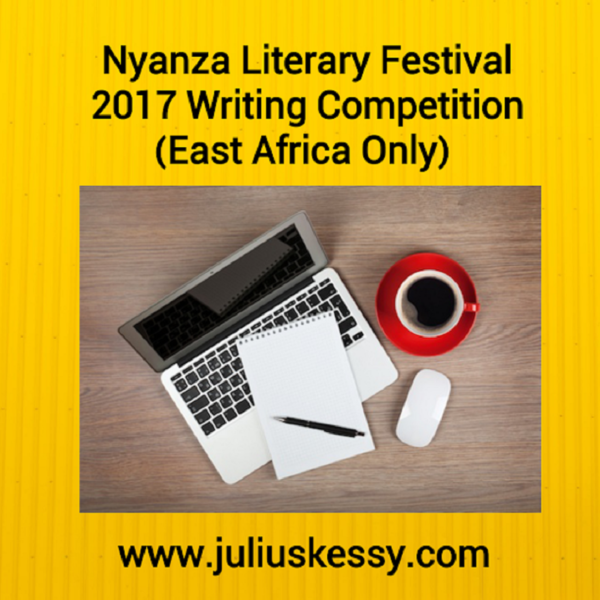
The 2017 Nyanza Literary Festival prizes are open for submissions. The festival’s inaugural 2016 prizes were won by Troy Onyango, for prose, and Redscar K’Oyuga Macodindo, for poetry. Macondindo’s win was eventually rescinded following his exposure as a serial plagiarist.
The Nyanza Literary Festival, which aims to “elevate engagement in the arts in Nyanza Province, Kenya” through literary contests and workshops, is run by Jakki Kerubo and his team.
The 2017 theme is “Freedom” and has $500 prize money for each of the winners in the Fiction, Screenplays/Plays, and Poetry categories.
Here are the entry guidelines.
Deadline: April 30, 2017
Send submissions to: [email protected]Eligibility: Only previously unpublished work written in English will be accepted. Past winners are not eligible. All applicants should be current or former residents of the Western Kenya/ formerly Nyanza region; or residents of the East African regions surrounding Lake Victoria (Entebbe, Kampala, Jinja, Bukoba, Mwanza, Musoma).
Format: All entries should be submitted in a standard type face, 12pt font and attached as a .pdf or .doc format.
For fiction: ONE short story or novel excerpt, maximum 25 (double-spaced) pages per entry.
For screenplay: ONE screenplay excerpt, maximum 50 (double-spaced) pages per entry.
For poetry: No more than SIX poems per entry, up to 10 pages total. Entrants may submit to only one category. In your subject line, please include your name and type of submission (short story, novel excerpt, poetry, screenplay etc.) e.g. Jane Owiso – Poetry Include your complete contact information (name, address, telephone, email address) on a cover page of the manuscript. Include proof of residency.
Passports and National IDs are acceptable forms of identification. Please note that NALIF does not condone plagiarism. Any plagiarized work will be disqualified. More details, including the judges, date, place and time of the award ceremony, will be announced at a later date.
Find out more on James Murua’s Literature Blog.








COMMENTS -
Reader Interactions